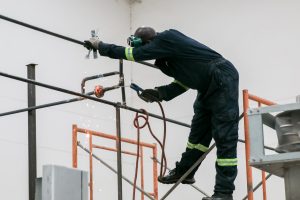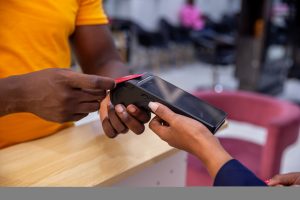Originally published on Next Billion
As the reverberations of COVID-19 continue to ravage global economies, the existing gender-poverty gap is set to widen, as women are more vulnerable to the impacts of the pandemic on their livelihoods. UN Women projects that for every 100 men aged 25-34 in extreme poverty due to the pandemic, 118 women of the same age will be living in extreme poverty by 2021.
Due to my work at the UK aid-funded FSD Africa, I am increasingly conscious of the disproportionate economic hardship women face. Even before the pandemic struck, their finances were precarious, despite the gains made in recent years. For instance, FinMark Trust found that 30% of female primary income earners in Kenya made their money via informal employment – which tends to be less reliable and less lucrative than formal jobs – as opposed to only 18% of their male counterparts. With their incomes severely impacted by the economic fallout of the pandemic, and with their usual routes for accessing finances, such as community lending groups, disrupted by local lockdowns, we need to be innovative in identifying ways in which women can continue to access financial services.
So, what’s the solution? Working with Women’s World Banking and other partners, FSD Africa has been supporting alternative models of financial inclusion. We believe these models represent a real opportunity for furthering women’s access to key financial serme when they need them most. Underpinning all of this is the knowledge that initiatives driving financial inclusion must place a greater emphasis on gender. Below, we’ll explore one promising innovation that could make a substantial difference in women’s lives: agent banking.
HOW AGENT BANKING IS IMPROVING WOMEN’S FINANCES DURING COVID-19
We know that women are historically the managers of their households in sub-Saharan Africa – including household finances. The pandemic has added a new element to this, as an increase in time spent at home – with children at home due to school closures – means supplies are depleted at a quicker rate. This is making it harder for women to make ends meet. “https://covid19tracker.africa/” target=”_blank” rel=”noopener noreferrer”>survey of Ugandan women found that 67% of women who had missed a loan repayment during lockdown did so to pay for essential supplies, in contrast to only 42% of men. Some have had to sell their valuable assets, like cows, to meet household obligations.
As women struggle with rapidly depleting liquid assets during local lockdowns, agent banking can provide an avenue for accessing cash by creating a bridge to the financial solutions they need. Agent banking is a model in which third-party agents process transactions on behalf of traditional banking institutions. It enables banks to extend their reach to unserved or underserved customer segments without making huge investments in their own brick and mortar infrastructure. Agents are often relatively small outfits like micro-retailers, or existing agents of other banks or telcos. They offer an alternative channel to reach women who currently find themselves unable to access core banking services – especially those in peri-urban and rural areas.
Agent banng offers women with increasing household responsibilities a valuable alternative to lending and savings groups, which may be inaccessible due to local COVID-19 lockdown restrictions. It also provides an easily accessible way for women to obtain funds to pay for essential items, whether that’s through loans, or through transfers from friends or family members.
AGENT BANKING’S ROLE GOES BEYOND FINANCIAL INCLUSION
The benefits of agent banking can also extend beyond access to finance. Access to information is a key component of financial inclusion, and agents can assist women in navigating services which may be new and unfamiliar to them. Banking agents can even play a vital role in distributing health information, helping to keep women connected and informed during the pandemic. The COVID-19 crisis has revealed a disparity in access to reliable information in many underserved communities. If this is not addressed, women will be at increased risk of endangering themselves through a lack of awarenes the safety measures needed to combat the virus.
Agent banking also provides an alternative means of employment, which is particularly valuable in this time of economic disruption and job loss. By providing grants to support our partners like Women’s World Banking, FSD Africa delivers opportunities for women to become banking agents themselves. These agents can have a considerable impact in boosting financial access: As women often face a lack of trust and a level of stigma when meeting with men outside of the home, they are far more likely to seek out financial services that are offered directly through another woman. To help address this issue, in 2019 alone, Women’s World Banking’s network of agents reached 64 million women.
While the COVID-19 pandemic has brought enormous challenges to emerging economies, especially in sub-Saharan Africa, it has also presented an opportunity to advance innovations, like agent banking, that promote the inclusion of the most underrepresented communities. The financilusion sector must embrace these innovations as part of our evolving response to the crisis, as we work to ensure that women’s access to financial services is not another casualty of COVID-19.
 




